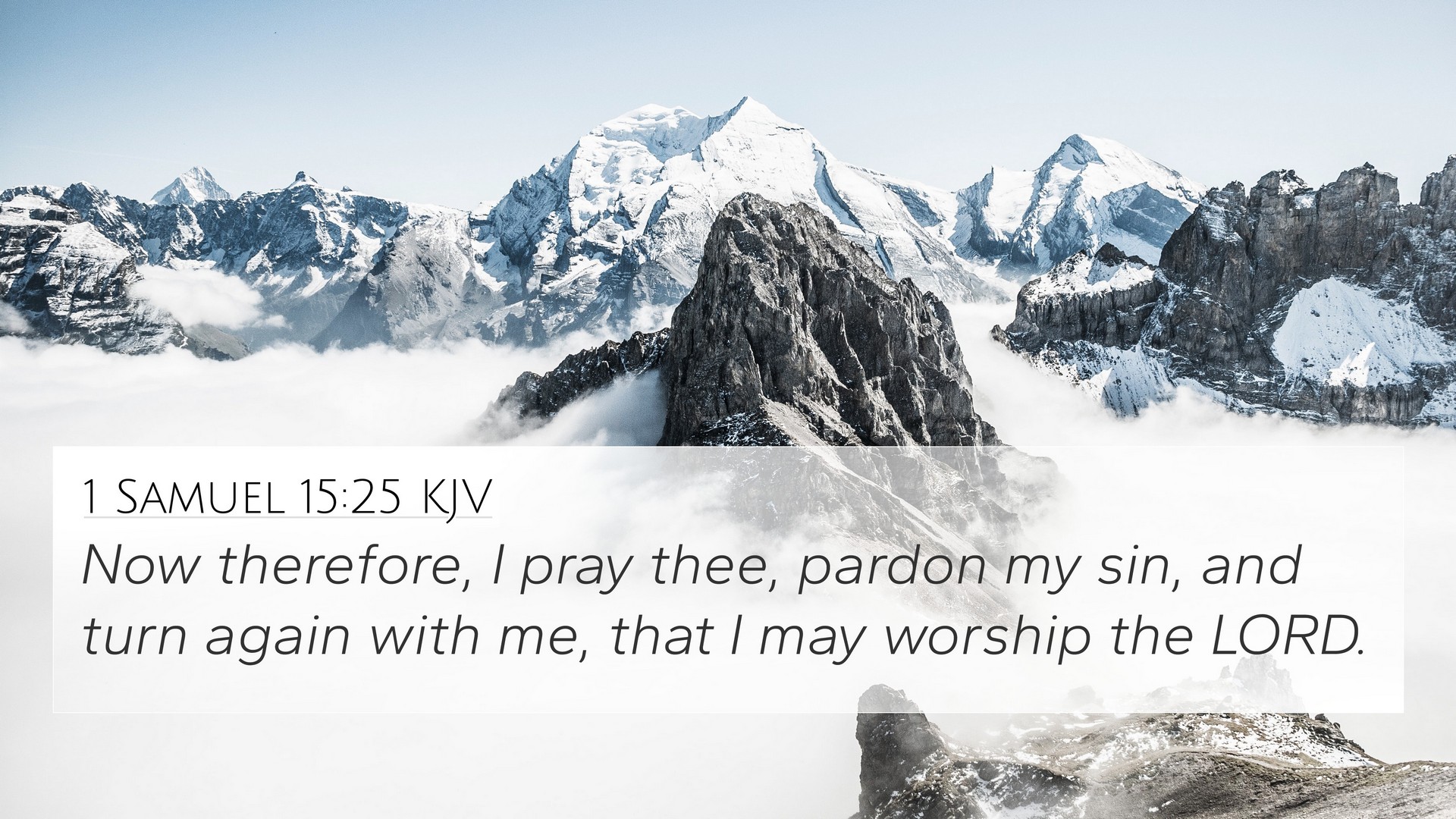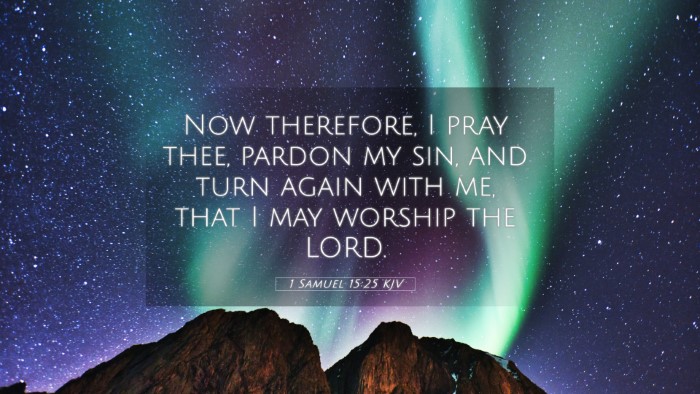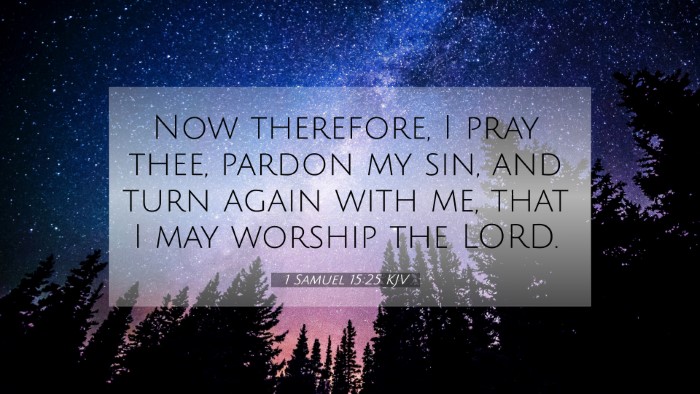Understanding 1 Samuel 15:25
In 1 Samuel 15:25, we encounter a pivotal moment in the book of Samuel that underscores the importance of obedience to God's command. This verse states:
“Now therefore, I pray thee, pardon my sin, and turn again with me, that I may worship the LORD.”
This plea is made by King Saul after he has been confronted by the Prophet Samuel regarding his disobedience in fulfilling God's command to completely destroy the Amalekites.
Summary of the Verse Meaning
The meaning of this verse can be understood by combining insights from various public domain commentaries:
- Matthew Henry: He emphasizes that Saul's request for pardon indicates a superficial understanding of sin and repentance. Saul acknowledges his wrongdoing but seeks restoration in worship without genuine contrition for his actions.
- Albert Barnes: Barnes notes that Saul's plea reflects a desire to maintain his position and relationship with God, but it exposes his lack of true repentance. Instead of humbly accepting God's judgment, Saul tries to manipulate the situation to regain favor.
- Adam Clarke: Clarke suggests that Saul's intention to worship the Lord, following his actions of disobedience, reflects a misunderstanding of the covenant relationship—worship is not merely a ritual act but must accompany obedience to God's commands.
Thematic Connections and Cross-References
The verse connects with several key themes in the Bible regarding obedience, repentance, and divine authority. Here are notable cross-references that elaborate on these themes:
- 1 Samuel 15:22-23: Samuel clarifies that obedience is better than sacrifice, establishing God's preference for adherence to His commands over ritual worship.
- Psalm 51:17: "The sacrifices of God are a broken spirit; a broken and contrite heart, O God, thou wilt not despise," which speaks to the kind of worship God desires—true repentance and humility.
- Romans 12:1: This New Testament passage encourages believers to present their bodies as living sacrifices, emphasizing the call for obedience through a life dedicated to God.
- John 14:15: "If ye love me, keep my commandments," which highlights the necessary link between love and obedience to God’s word.
- Isaiah 1:11-17: God rebukes empty rituals and calls for genuine worship marked by righteous living and justice.
- Exodus 20:3-17: The Ten Commandments establish the foundation for God’s expectations regarding obedience.
- James 1:22: "But be doers of the word, and not hearers only," which reinforces the need for active adherence to God's commands.
Insights on Obedience and True Worship
Considering the above connections, the verse serves as a reminder that God demands not only ritualistic worship but also a heart aligned with His will. Saul's request reveals a common human tendency to seek forgiveness while avoiding genuine confrontation with our wrongdoings.
Comparative Bible Verse Analysis
Examining 1 Samuel 15:25 alongside these cross-references highlights crucial similarities and contrasts:
- Contrasting Responses: Saul's response reflects a desire for restoration, but it is not paired with true repentance, unlike the trait shown in Psalm 51.
- Obedience vs. Sacrifice: The emphasis in Samuel's rebuke (1 Samuel 15:22-23) aligns with teachings in Isaiah that critique empty worship devoid of righteous action.
- The Nature of True Worship: 1 Samuel 15’s narrative sets up a dichotomy; true worship involves living in accordance with God's commands as elaborated in the New Testament teachings of Jesus (John 14:15).
Practical Applications
For modern believers, understanding 1 Samuel 15:25 involves embracing the concepts of:
- Genuine Repentance: Moving beyond surface-level apologies and truly seeking to align one's actions with God's desires.
- True Worship: Acknowledging that worship is more than a weekly routine—it's an everyday lifestyle of obedience and love towards God.
- Learning through Cross-Referencing: Utilizing tools for Bible cross-referencing can lead to deeper insights into how different scriptures enhance understanding of obedience and worship.
Conclusion
In sum, 1 Samuel 15:25 offers rich theological insights into the nature of obedience and the essence of worship. It challenges readers to reflect on the integrity of their spiritual lives, emphasizing the need for a heart attuned to God's commands rather than mere outward displays of piety.



